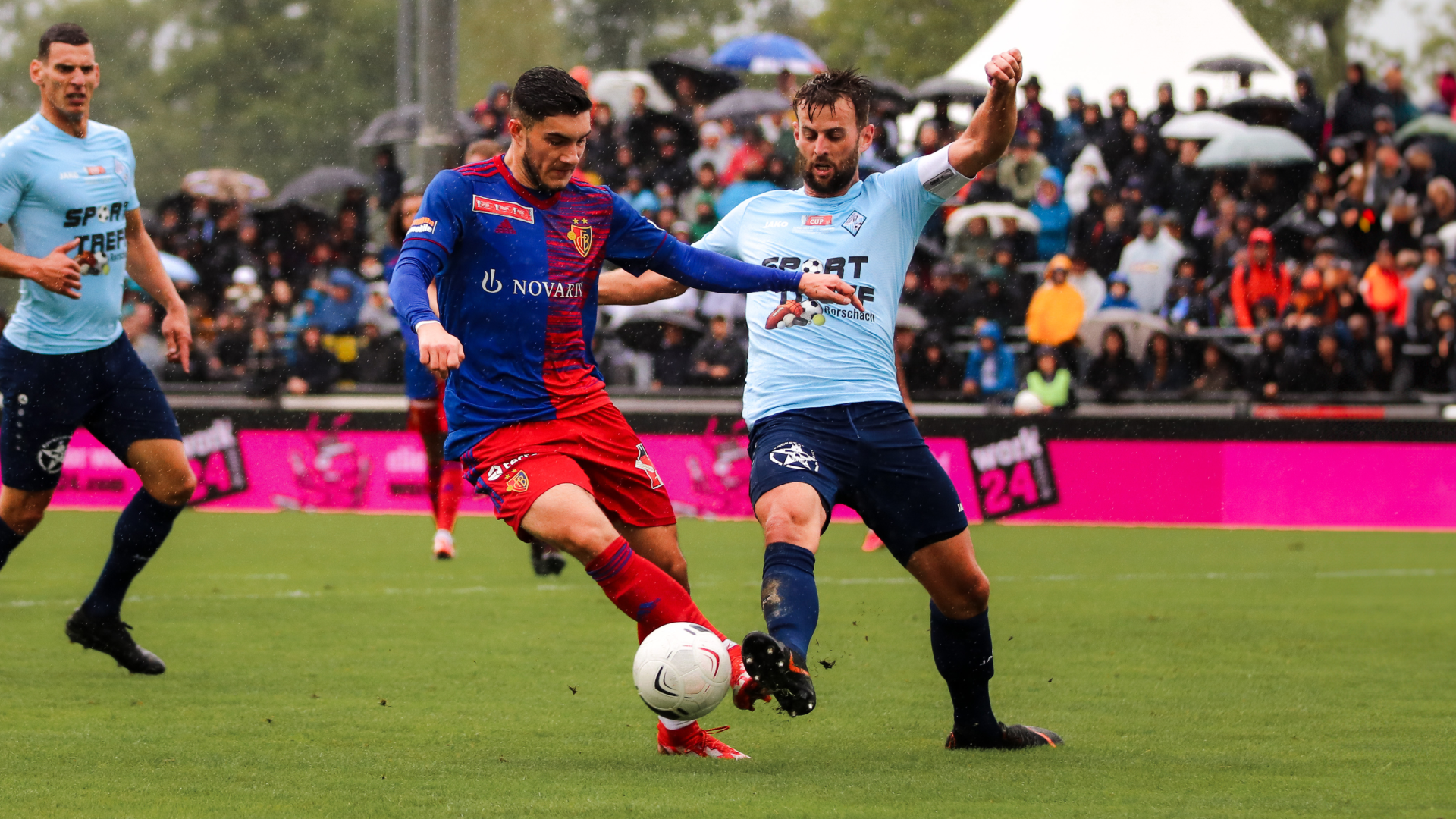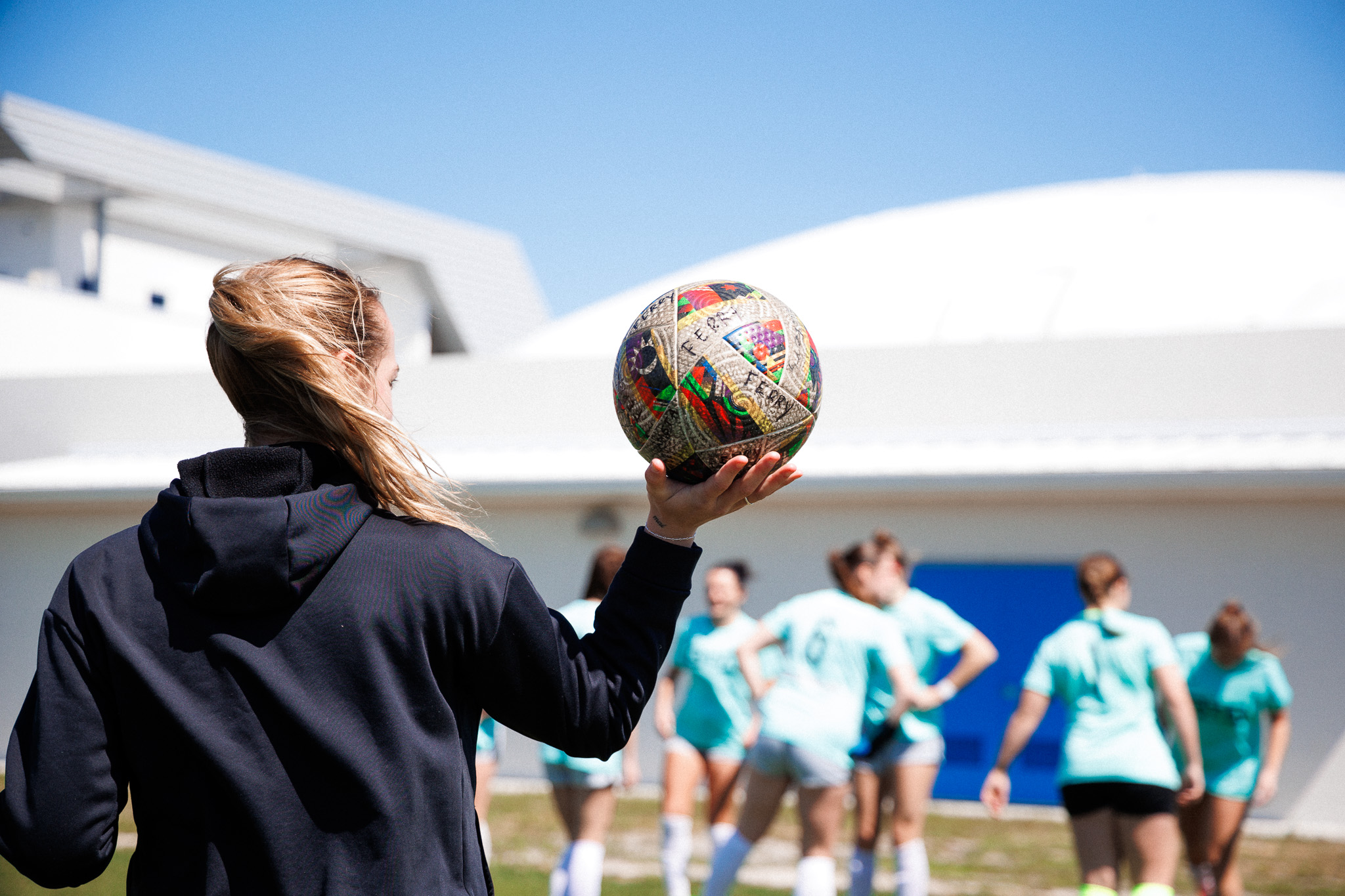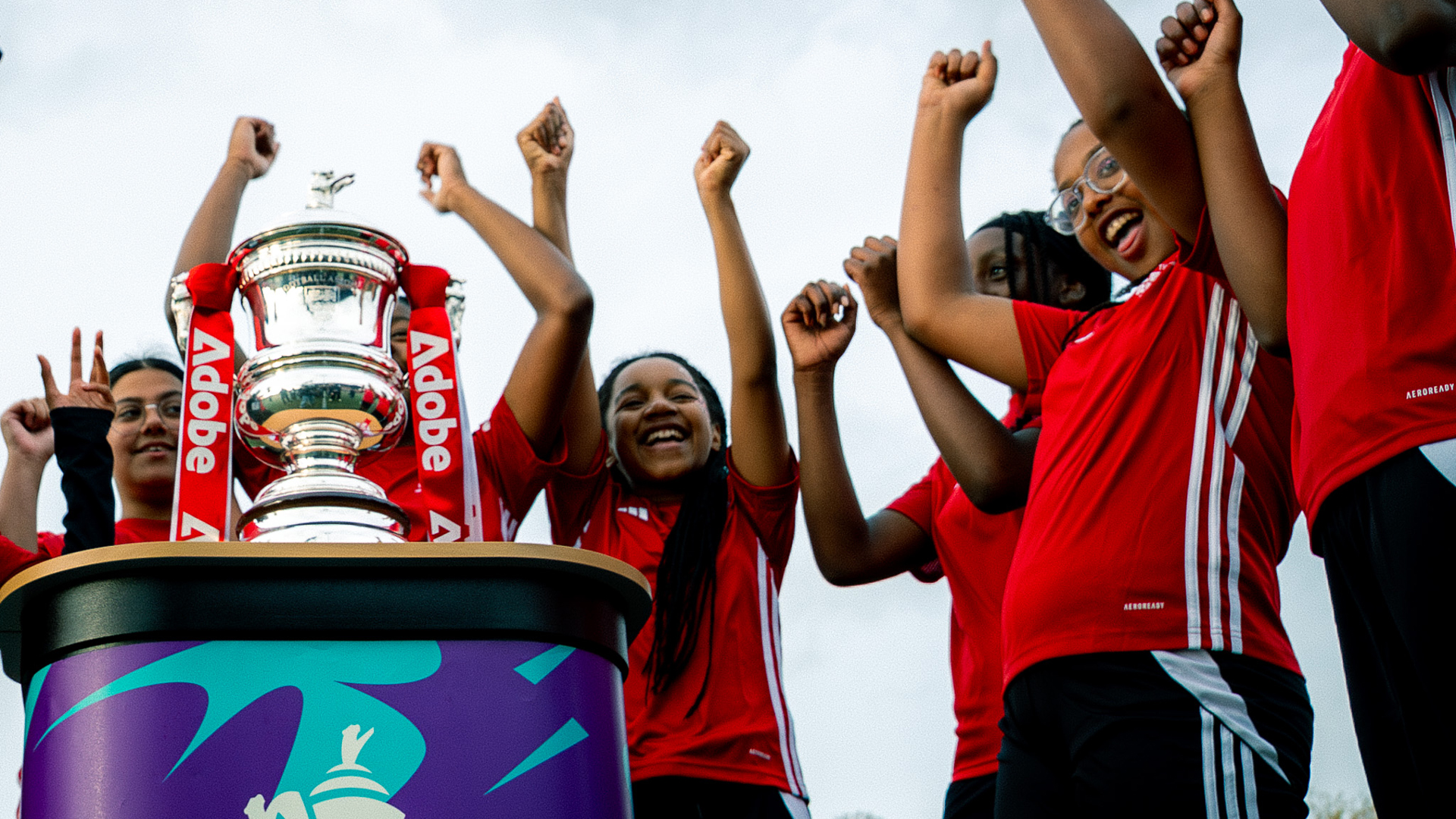Mike Phelan and David Horrocks on creating a winning mentality
Frederik Hvillum
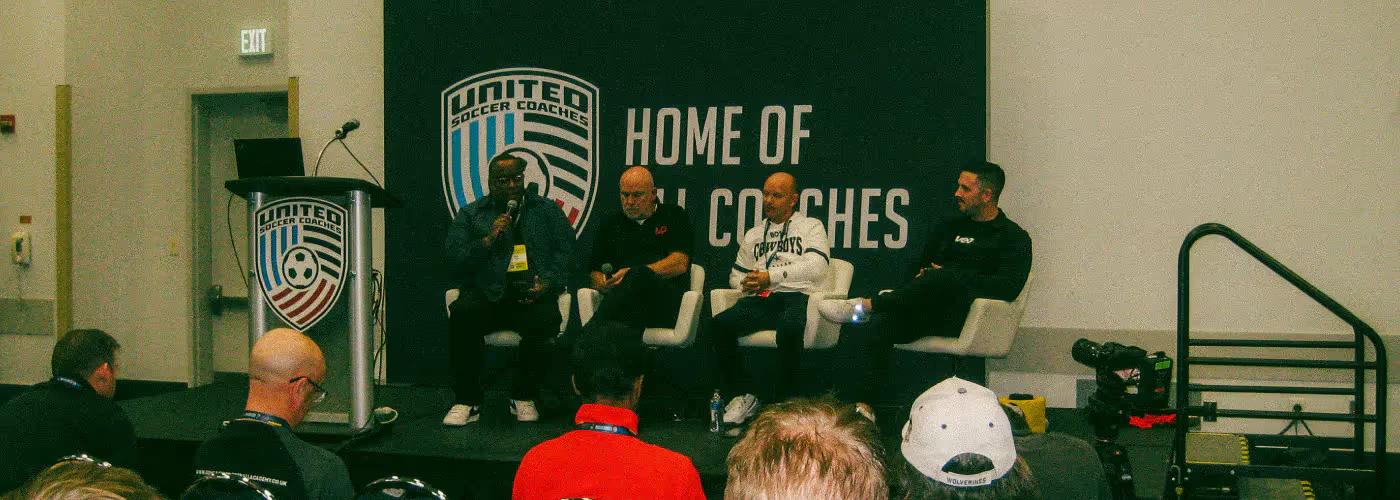
The former Manchester United coach Mike Phelan and David Horrocks on creating a winning mindset among players, coaches, and parents.
"One of the first lessons I really learned was to be yourself. Be who you are,” expressed former Manchester United player and assistant coach Mike Phelan when asked on stage at this year's United Soccer Coaches about the principles he thinks are important to pass on from the coaching staff to the player squad.
Accompanied by David Horrocks, the former Head of R&D at Manchester United and a published scientist on elite sporting practices, Phelan was invited to the stage by Veo to talk about creating a winning mentality in youth football.
For both Horrocks and Phelan, it's important that young players start playing football to have fun with their friends. There shouldn't be too much pressure on the youngsters, as they can quickly lose interest.
"It's important for coaches to understand that people might start playing football for fun and have the mindset: Let's just go on a journey. Let's enjoy. Let's develop on a daily, weekly, monthly basis,” Horrocks said.
For Phelan, several important qualities come into play when looking at talent development. According to the former coach, they look for key characteristics that can determine a player's potential and future success. One crucial factor is a growth mindset – the ability for constant learning and development. Examining whether players have the ability to immerse themselves in what fascinates them and what brings smiles to their faces is also a key aspect, Phelan explained before involving the role of parents in talent development.
"The parents are part of this journey too, especially with the younger ones. I think they need to be informed about what we're trying to do and how we're trying to do it,” he said. "The fact that it's not a rush; the world wasn't created in a day."
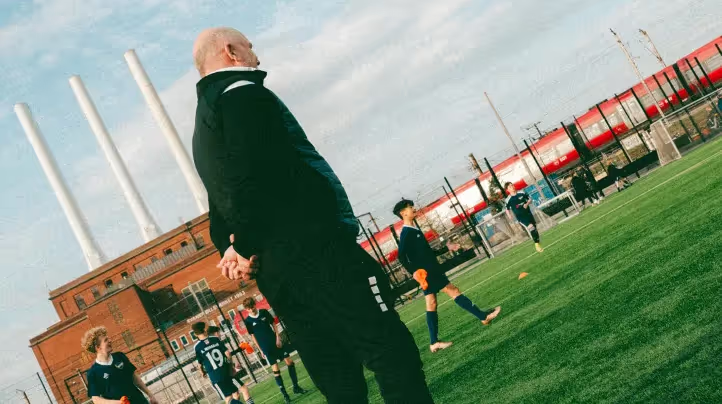
The right people in the right environment
Both Horrocks and Phelan have won several trophies in their coaching careers, with Phelan having three English championships on his resume, while they have coached superstars like Cristiano Ronaldo and worked with managers like Sir Alex Ferguson.
However, both highlighted that it's not about trophies and big names when it comes to the winning mentality. They made it clear that while big and prominent names are interesting, it's more about dealing with the right people in the right environment.
“We've got to remember what it takes to get to the top in the first place. There's a lot of work and effort that goes in. Communication is key. And it's having the right people in that environment, from the beginning to the end. And then viewing the journey path of success,” Phelan expressed before he continued. “Is the icing on the cake, which is the medal, the success? Not necessarily. There are a lot of different things now in the game."
“We all want to get to the top. But there are stages in your career you go through in order to get there,” Phelan said before delving into the importance of these steps in development and how to find peace in finding the right level for oneself.
“Along that journey, there's also a stage when you find the level you want to be, where you want to work. You could be the best u-12 coach and have a really satisfying experience with that. And you shouldn't underestimate your value to yourself and your players because you're good at that level. You may want to aspire to the next level, and there's nothing wrong with having a little snippet of that and thinking, 'For me, it's not good.' And I think that's really important."
At the same time, it's important for Phelan that coaches don't judge themselves and players based on poor results on the field because there's always another game.
"Don't judge yourself because of the result because there is another game. And another one after that. When you are in it, the past doesn’t matter. It is about the future, the next game, and the game after that. Don’t judge yourself over one game but over a period of time."
The humanistic side is key
Horrocks, who spent seven years in the technology sector and did his PhD thesis on expert performance based on extended studies with his former club, Manchester United, and in European/USPGA and South African Tour golf, turned the discussion to the humanistic side when looking at young football talents. One of the most important things is to know the players as individuals outside the field.
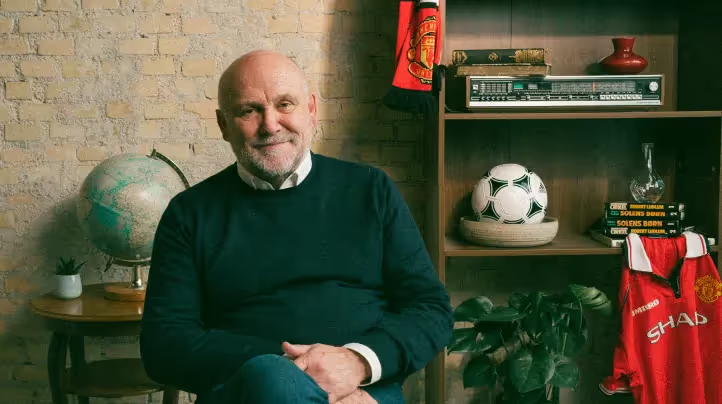
"The first thing we've got to know is how they are as a person and as a football player. Find out what they're interested in. What's their goal? What are their interests? When you show valuable interest in other things they're doing in life, they forget about football straightaway. They're just looking at you as an individual and trying to get a relationship.”
"What do the parents do for a living? This type of background research into the humanistic side is key," Horrocks explained.
Phelan emphasized that, as a coach, it's important to create a safe environment for players to perform.
"It's important that I get to know these individuals because we see them a couple of times during the week as coaches. For that moment in time, they're with you,” Phelan said and continued. “It might be the best one or two hours because unless you know their background, it could be the most outstanding moment in the week. That's why it's really important to get to know each individual. You create a safe environment around that group."
It’s all about the process
Phelan and Horrocks both emphasized the development of a winning mentality as a process that is not visible from day one. After each game and training session, the coach should look back and assess what went well and what didn't to instill the right mentality in the club.
"The first thing you should ask after a session or game is what you learned today. What did you enjoy today? The results aren't that important; they will come over time if you keep learning consistently and repeatedly,” Horrocks said.
It's about the process, as Horrocks explained. He also provided an example from his coaching career where things didn't go well for the team.
“You can lose 9 or 10-0. If you lose 10-0, the objective is to lose the next one 9-0, then 8-0. I’ve tried this. At one of my first teams, we lost 14-0. We got that down to 8-0, to six, to four and you wouldn’t believe the celebration when we drew a game,” Horrocks said with a smile on his face.
Here, Horrocks also utilized video technology, specifically one of Veo's features, known as match momentum.
"You can also look at the video data. Use the Veo to look at possession. How much possession did we have? We might have had 25% possession and lost the game; let’s aim for having around 40% possession in the next game. How many shots did you have? Four? Next time, we will have six. The results and progression can be found in the data. They’ll have fun watching it on the screen and see their development."
For Phelan, it's also about breaking the game into blocks if things don't go according to plan. If the team is down 4-0 at halftime, there may be a long way to go, and here, it requires a lot from the coach to boost the spirits of the players.
"What do you do when you’re down 4-0 at halftime? You tell your team to win the second half. It’s 0-0; let’s win the second half,” Phelan said. “You make building boxes. Break the game down to 10 minutes. You might be one up. Take some credit out of that. All these are principles that you can apply."


